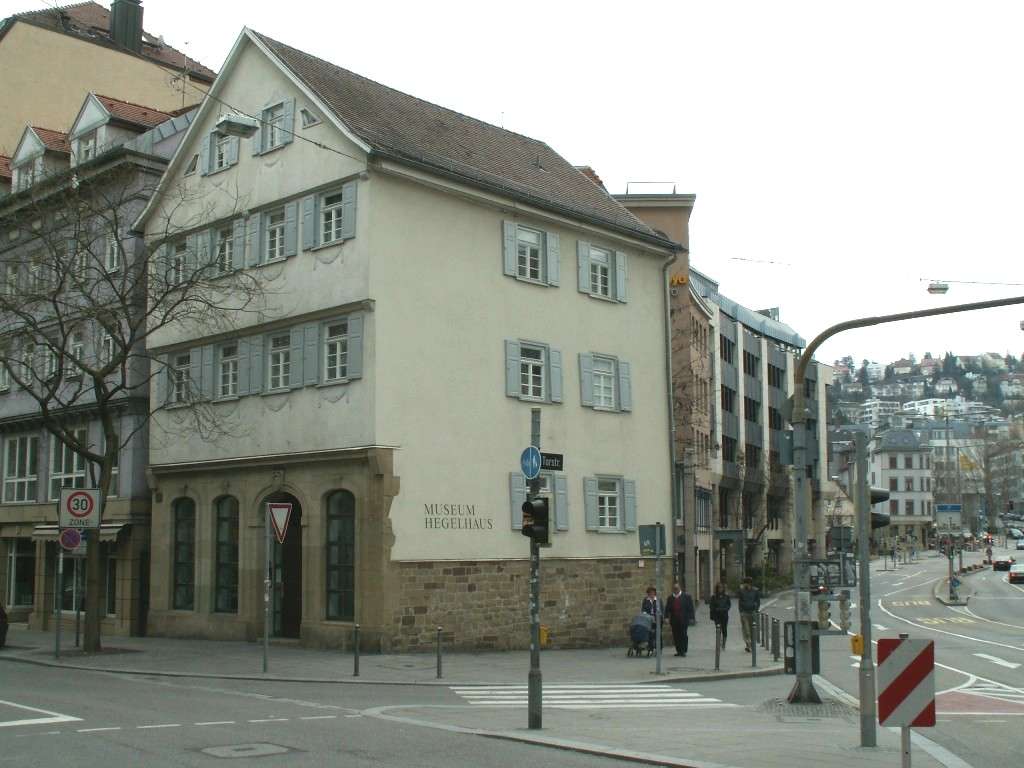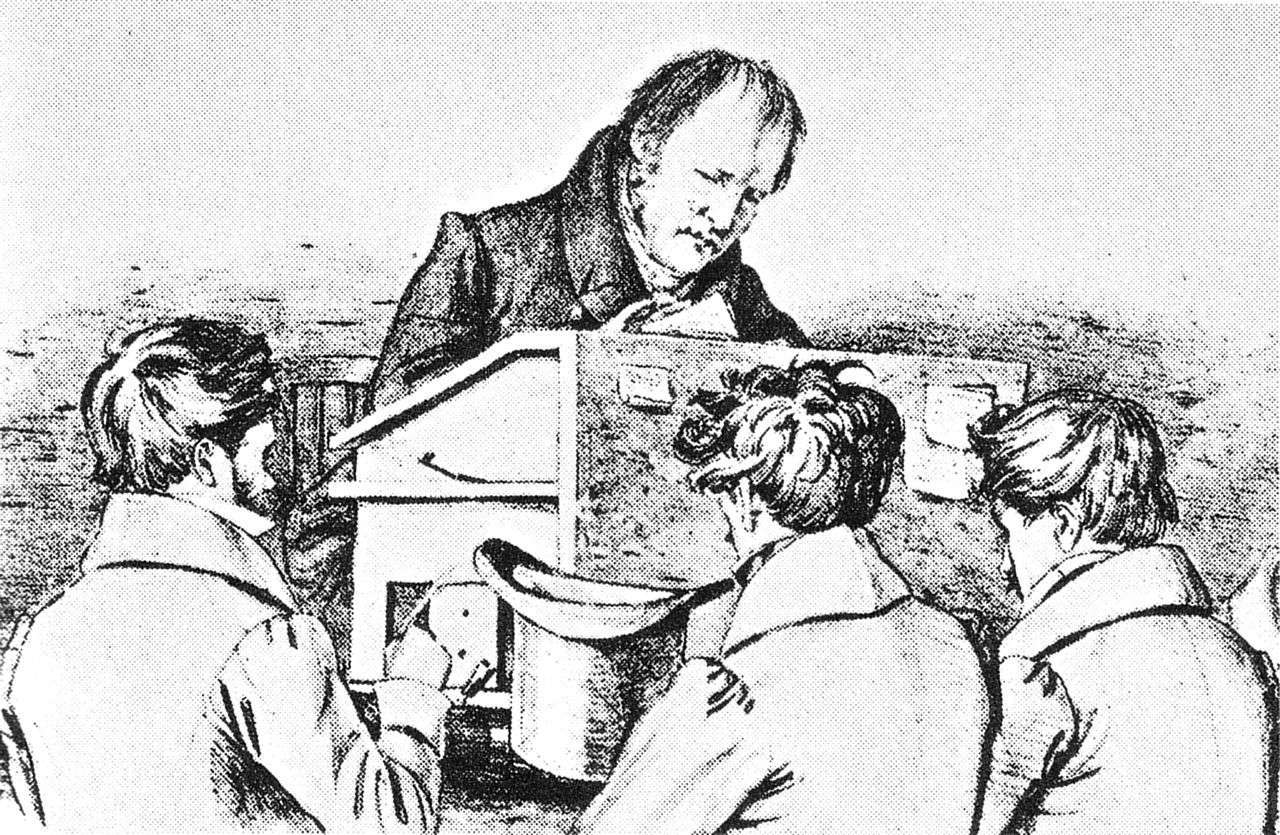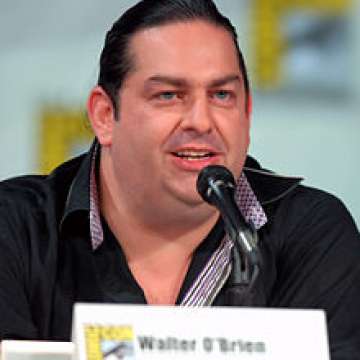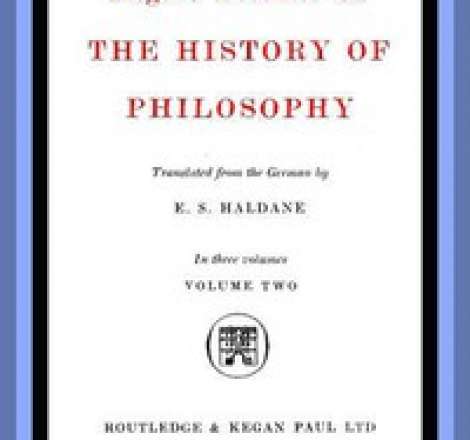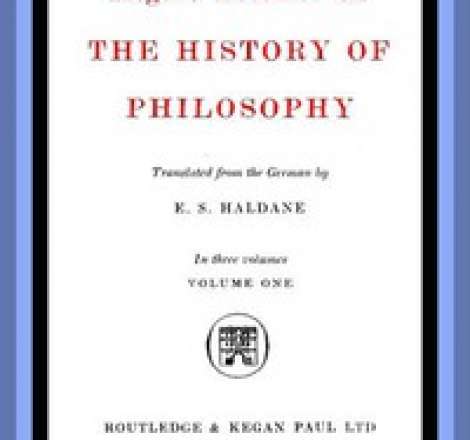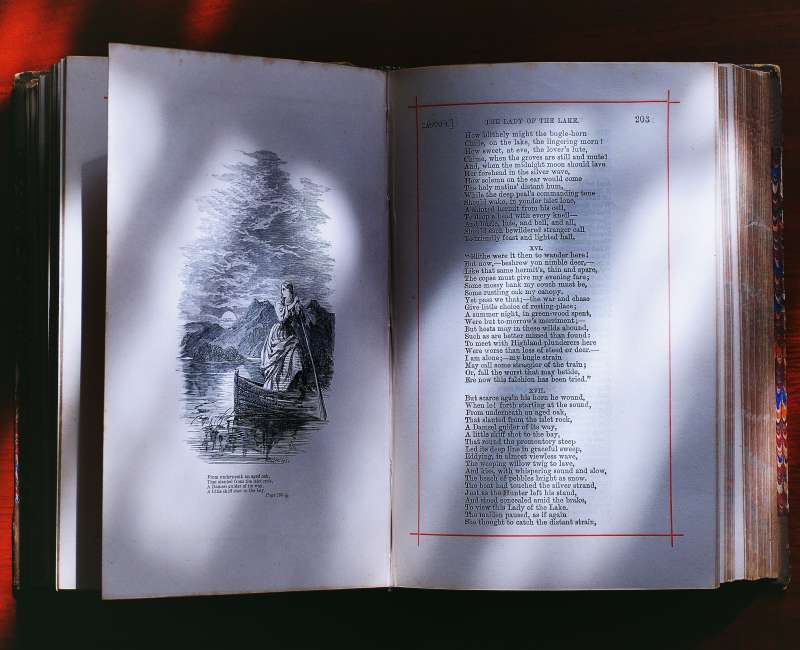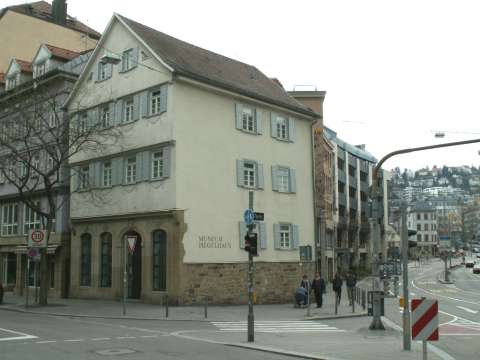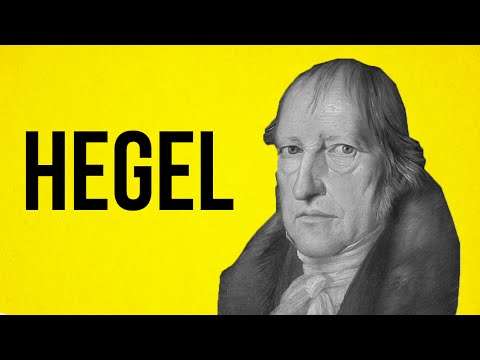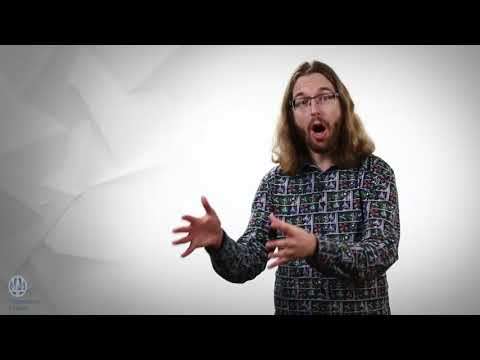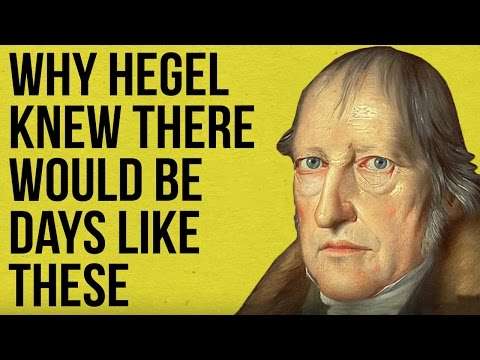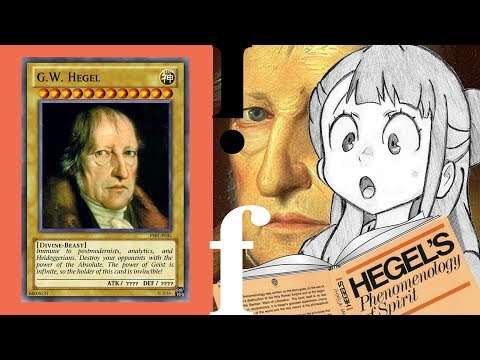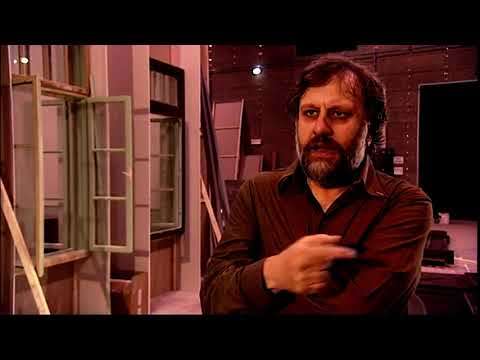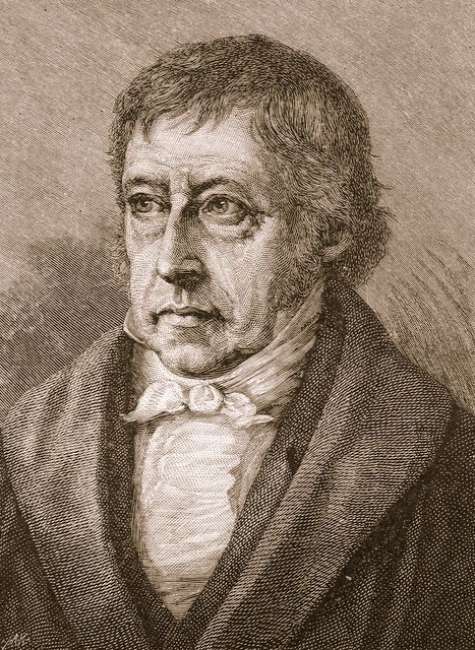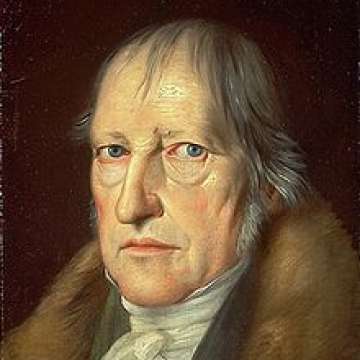

Georg Wilhelm Friedrich Hegel (1770-1831)
Nothing great in the world was accomplished without passion.
Georg Wilhelm Friedrich Hegel was a German philosopher and the most important figure in German idealism. He is considered one of the fundamental figures of modern Western philosophy, with his influence extending to the entire range of contemporary philosophical issues, from aesthetics to ontology to politics, both in the analytic and continental tradition.
Hegel's principal achievement was his development of a distinctive articulation of idealism, sometimes termed absolute idealism, in which the dualisms of, for instance, mind and nature and subject and object are overcome. His philosophy of spirit conceptually integrates psychology, the state, history, art, religion and philosophy. His master–slave dialectic has been influential, especially in 20th-century France. Of special importance is his concept of spirit Geist, sometimes also translated as "mind" as the historical manifestation of the logical concept – and the "sublation" Aufhebung, integration without elimination or reduction – of seemingly contradictory or opposing factors: examples include the apparent opposition between necessity and freedom and between immanence and transcendence. Hegel has been seen in the twentieth century as the originator of the thesis, antithesis, synthesis triad, but as an explicit phrase it originated with Johann Gottlieb Fichte.
Hegel has influenced many thinkers and writers whose own positions vary widely. For example, "the roots of post-structuralism and its unifying basis lies, in large part, in a general opposition not to the philosophical tradition tout court but specifically to the Hegelian tradition" dominating philosophy in the twentieth century prior to post-structuralism. Paul Tillich wrote that the historical dialectical thought of Hegel "has influenced world history more profoundly than any other structural analysis." Karl Barth described Hegel as a "Protestant Aquinas" while Maurice Merleau-Ponty wrote that "all the great philosophical ideas of the past century—the philosophies of Marx and Nietzsche, phenomenology, German existentialism, and psychoanalysis—had their beginnings in Hegel."
Hegel's work has been considered the "completion of philosophy" by multiple of the most influential thinkers in existentialism, post-structuralism, and twentieth-century theology. Derrida wrote of Hegel in his work Of Grammatology that "he undoubtedly summed up the entire philosophy of the logos. He determined ontology as absolute logic; he assembled all the delimitations of philosophy as presence," later remarking that Hegel is thus "the last philosopher of the book and the first philosopher of writing," indicating the relation of Hegel to post-structural thought by stating "if there were a definition of Différance, it would be precisely the limit, the interruption, the destruction of the Hegelian dialectical synthesis wherever it operates." In his work Systematic Theology, theologian Paul Tillich referred to Hegel's work as "perfect essentialism," later writing "essentialism was in Hegel's system fulfilled." Martin Heidegger observed in his 1969 work Identity and Difference and in his personal Black Notebooks that Hegel's system in an important respect "consummates western philosophy" by completing the idea of the logos, the self-grounding ground, in thinking through the identification of Being and beings, which is "the theme of logic", writing "t is... incontestable that Hegel, faithful to tradition, sees the matter of thinking in beings as such and as a whole, in the movement of Being from its emptiness to its developed fullness." Heidegger in various places further qualified Hegel's thinking "the most powerful thinking of modern times."
Life
Early years
Childhood
Hegel was born on 27 August 1770 in Stuttgart, capital of the Duchy of Württemberg in southwestern Germany. Christened Georg Wilhelm Friedrich, he was known as Wilhelm to his close family. His father, Georg Ludwig, was Rentkammersekretär secretary to the revenue office at the court of Karl Eugen, Duke of Württemberg. Hegel's mother, Maria Magdalena Louisa née Fromm, was the daughter of a lawyer at the High Court of Justice at the Württemberg court. She died of bilious fever Gallenfieber when Hegel was thirteen. Hegel and his father also caught the disease, but they narrowly survived. Hegel had a sister, Christiane Luise 1773–1832; and a brother, Georg Ludwig 1776–1812, who perished as an officer during Napoleon's 1812 Russian campaign.

At the age of three, Hegel went to the German School. When he entered the Latin School two years later, he already knew the first declension, having been taught it by his mother. In 1776, he entered Stuttgart's gymnasium illustre and during his adolescence read voraciously, copying lengthy extracts in his diary. Authors he read include the poet Friedrich Gottlieb Klopstock and writers associated with the Enlightenment, such as Christian Garve and Gotthold Ephraim Lessing. His studies at the Gymnasium concluded with his Abiturrede "graduation speech" "Der verkümmerte Zustand der Künste und Wissenschaften unter den Türken" "The abortive state of art and scholarship in Turkey".
Tübingen 1788–1793
At the age of eighteen, Hegel entered the Tübinger Stift a Protestant seminary attached to the University of Tübingen, where he had as roommates the poet and philosopher Friedrich Hölderlin and the future philosopher Friedrich Wilhelm Joseph Schelling. Sharing a dislike for what they regarded as the restrictive environment of the Seminary, the three became close friends and mutually influenced each other's ideas. All greatly admired Hellenic civilization and Hegel additionally steeped himself in Jean-Jacques Rousseau and Lessing during this time. They watched the unfolding of the French Revolution with shared enthusiasm. Schelling and Hölderlin immersed themselves in theoretical debates on Kantian philosophy, from which Hegel remained aloof. Hegel, at this time, envisaged his future as that of a Popularphilosoph, a "man of letters" who serves to make the abstruse ideas of philosophers accessible to a wider public; his own felt need to engage critically with the central ideas of Kantianism did not come until 1800.
Although the violence of the 1793 Reign of Terror dampened Hegel's hopes, he continued to identify with the moderate Girondin faction and never lost his commitment to the principles of 1789, which he expressed by drinking a toast to the storming of the Bastille every fourteenth of July.
Bern 1793–1796 and Frankfurt 1797–1801
Having received his theological certificate Konsistorialexamen from the Tübingen Seminary, Hegel became Hofmeister house tutor to an aristocratic family in Bern 1793–1796. During this period, he composed the text which has become known as the Life of Jesus and a book-length manuscript titled "The Positivity of the Christian Religion". His relations with his employers becoming strained, Hegel accepted an offer mediated by Hölderlin to take up a similar position with a wine merchant's family in Frankfurt in 1797. There, Hölderlin exerted an important influence on Hegel's thought. While in Frankfurt, Hegel composed the essay "Fragments on Religion and Love". In 1799, he wrote another essay entitled "The Spirit of Christianity and Its Fate", unpublished during his lifetime.
Also in 1797, the unpublished and unsigned manuscript of "The Oldest Systematic Program of German Idealism" was written. It was written in Hegel's hand, but may have been authored by Hegel, Schelling, Hölderlin, or an unknown fourth person.
Career years
Jena, Bamberg and Nuremberg 1801–1816
In 1801, Hegel came to Jena at the encouragement of his old friend Schelling, who held the position of Extraordinary Professor at the University of Jena. Hegel secured a position at the University of Jena as a Privatdozent unsalaried lecturer after submitting the inaugural dissertation De Orbitis Planetarum, in which he briefly criticized arguments that assert—based on Bode's Law or other arbitrary choice of mathematical series—there must exist a planet between Mars and Jupiter. Unbeknownst to Hegel, Giuseppe Piazzi had discovered the minor planet Ceres within that orbit on 1 January 1801. Later in the year, Hegel's first book The Difference Between Fichte's and Schelling's Systems of Philosophy was completed. He lectured on "Logic and Metaphysics" and gave lectures with Schelling on an "Introduction to the Idea and Limits of True Philosophy" and facilitated a "philosophical disputorium". In 1802, Schelling and Hegel founded the journal Kritische Journal der Philosophie Critical Journal of Philosophy to which they contributed until the collaboration ended when Schelling left for Würzburg in 1803.

In 1805, the university promoted Hegel to the position of Extraordinary Professor unsalaried after he wrote a letter to the poet and minister of culture Johann Wolfgang Goethe protesting the promotion of his philosophical adversary Jakob Friedrich Fries ahead of him. Hegel attempted to enlist the help of the poet and translator Johann Heinrich Voß to obtain a post at the renascent University of Heidelberg, but he failed. To his chagrin, Fries was, in the same year, made Ordinary Professor salaried.
With his finances drying up quickly, Hegel was under great pressure to deliver his book, the long-promised introduction to his philosophical system. Hegel was putting the finishing touches to it, The Phenomenology of Spirit, as Napoleon engaged Prussian troops on 14 October 1806 in the Battle of Jena on a plateau outside the city. On the day before the battle, Napoleon entered the city of Jena. Hegel recounted his impressions in a letter to his friend Friedrich Immanuel Niethammer:
I saw the Emperor—this world-soul [Weltseele]—riding out of the city on reconnaissance. It is indeed a wonderful sensation to see such an individual, who, concentrated here at a single point, astride a horse, reaches out over the world and masters it.
Pinkard 2000 notes that Hegel's comment to Niethammer "is all the more striking since he had already composed the crucial section of the Phenomenology in which he remarked that the Revolution had now officially passed to another land Germany that would complete 'in thought' what the Revolution had only partially accomplished in practice". Although Napoleon chose not to close down Jena as he had other universities, the city was devastated and students deserted it in droves, making Hegel's financial prospects even worse. The following February marked the birth of Hegel's illegitimate son, Georg Ludwig Friedrich Fischer 1807–1831, as the result of an affair with Hegel's landlady Christiana Burkhardt née Fischer who had been abandoned by her husband.
In March 1807, Hegel moved to Bamberg, where Niethammer had declined and passed on to Hegel an offer to become editor of a newspaper, the Bamberger Zeitung . Unable to find more suitable employment, Hegel reluctantly accepted. Ludwig Fischer and his mother whom Hegel may have offered to marry following the death of her husband stayed behind in Jena.
In November 1808, Hegel was again through Niethammer, appointed headmaster of a gymnasium in Nuremberg, a post he held until 1816. While in Nuremberg, Hegel adapted his recently published Phenomenology of Spirit for use in the classroom. Part of his remit was to teach a class called "Introduction to Knowledge of the Universal Coherence of the Sciences", Hegel developed the idea of an encyclopedia of the philosophical sciences, falling into three parts: logic, philosophy of nature and philosophy of spirit.
In 1811, Hegel married Marie Helena Susanna von Tucher 1791–1855, the eldest daughter of a Senator. This period saw the publication of his second major work, the Science of Logic Wissenschaft der Logik; 3 vols., 1812, 1813 and 1816, and the birth of his two legitimate sons, Karl Friedrich Wilhelm 1813–1901 and Immanuel Thomas Christian 1814–1891.
Heidelberg and Berlin 1816–1831
Having received offers of a post from the Universities of Erlangen, Berlin and Heidelberg, Hegel chose Heidelberg, where he moved in 1816. Soon after, his illegitimate son Ludwig Fischer now ten years old joined the Hegel household in April 1817, having spent time in an orphanage:354–55 after the death of his mother Christiana Burkhardt.
In 1817, Hegel published The Encyclopedia of the Philosophical Sciences in Outline as a summary of his philosophy for students attending his lectures at Heidelberg.
In 1818, Hegel accepted the renewed offer of the chair of philosophy at the University of Berlin, which had remained vacant since Johann Gottlieb Fichte's death in 1814. Here, Hegel published his Philosophy of Right 1821. Hegel devoted himself primarily to delivering lectures; his lectures on aesthetics, the philosophy of religion, the philosophy of history and the history of philosophy were published posthumously from students' notes. His fame spread and his lectures attracted students from all over Germany and beyond.

In 1819–1827, he made two trips to Weimar, where he met Goethe, and to Brussels, the Northern Netherlands, Leipzig, Vienna, Prague, and Paris.
Hegel was appointed University Rector of the University in October 1829, but his term ended in September 1830. Hegel was deeply disturbed by the riots for reform in Berlin in that year. In 1831, Frederick William III decorated him with the Order of the Red Eagle, 3rd Class for his service to the Prussian state. In August 1831, a cholera epidemic reached Berlin and Hegel left the city, taking up lodgings in Kreuzberg. Now in a weak state of health, Hegel seldom went out. As the new semester began in October, Hegel returned to Berlin in the mistaken belief that the epidemic had largely subsided. By 14 November, Hegel was dead. The physicians pronounced the cause of death as cholera, but it is likely he died from another gastrointestinal disease. His last words are said to have been, "There was only one man who ever understood me, and even he didn't understand me." He was buried on 16 November. In accordance with his wishes, Hegel was buried in the Dorotheenstadt cemetery next to Fichte and Karl Wilhelm Ferdinand Solger.
Hegel's illegitimate son, Ludwig Fischer, had died shortly before while serving with the Dutch army in Batavia and the news of his death never reached his father. Early the following year, Hegel's sister Christiane committed suicide by drowning. Hegel's remaining two sons—Karl, who became a historian; and Immanuel , who followed a theological path—lived long and safeguarded their father's manuscripts and letters, and produced editions of his works.
Philosophical work
Logic and metaphysics
From the time of Leibniz to the widespread adoption of Frege's logic in the 1930s, every standard work on logic consisted of three divisions: doctrines of concept, judgment, and inference. Doctrines of concept address the systematic, hierarchical relations of the most general classes of things. Doctrines of judgment investigate relations of subject and predicate; and doctrines of inference lay out the forms of syllogisms originally found in Aristotelian term logic.
Indeed, "logic" in the field of nineteenth-century continental philosophy takes on a range of meanings from "metaphysics" to "theory of science," from "critical epistemology" to "first philosophy." And debates about the nature of logic were intertwined with competition to inherit the mantle of Kant and with it the future direction of German philosophy. Each new logic book staked a new claim in a century-long expansionist turf war among philosophical trends.
With the possible exception of the study of inference, what was called "logic" in nineteenth-century Europe and so Hegel's Logic bears little resemblance to what logicians study today. Logic, particularly the doctrine of the concept, was metaphysics; it was the search for a fundamental ontological structure within the relations of the most basic predicates quantity, time, place etc., a practice that goes back to Plato's Sophist and Aristotle's Categories.
This research program took on new meaning with the 1781 publication of Kant's Critique of Pure Reason. Kant derived his own table of categories the twelve pure or "ancestral" concepts of the understanding that structure all experience irrespective of content from a standard term-logical table of judgments, noting also that
...the true ancestral concepts...also have their equally pure derivative concepts, which could by no means be passed over in a complete system of transcendental philosophy, but with the mere mention of which I can be satisfied in a merely critical essay.
The Science of Logic which the latter Hegel considered central to his philosophy can be considered a notable contribution to the research program of category metaphysics in its post-Kantian form, taking up the project that Kant suggested is necessary but did not himself pursue: "to take note of and, as far as possible, completely catalog" the derivative concepts of the pure understanding and "completely illustrate its family tree."
The affinity between Hegel and Kant's logics "speculative" and "transcendental" respectively is apparent in their vocabulary. Kant spoke of Entstehen coming-to-be and Vergehen ceasing-to-be, the same two terms that Hegel used to refer to the two compositional elements of Werden becoming. Kant used the term Veränderung change instead of Werden, however, and the designation of ontological categories by name is itself a complex topic. And although the Logic's table of contents minimally resembles Kant's table of categories, the four headings of Kant's table quantity, quality, relation, and modality do not play, in Hegel's dialectic, the organizational role that Kant had in mind for them, and Hegel ultimately faulted Kant for copying the table of judgments from the "modern compendiums of logic" whose subject matter is, Hegel said, in need of "total reconstruction."
So how are the categories derived? Hegel wrote that
...profounder insight into the antinomial, or more truly into the dialectical nature of reason demonstrates any Concept [Begriff] whatsoever to be a unity of opposed elements [Momente] to which, therefore, the form of antinomial assertions could be given.
Because every concept is a composite of contraries value is black and white, temperature is hot and cold, etc., all the pure concepts of the understanding are immanently contained within the most abstract concept; the entire tree of the concepts of the pure understanding unfolds from a single concept the way a tree grows from a seed. For this reason, Hegel's Logic begins with the summum genus, "Being, pure Being," "and God has the absolutely undisputed right that the beginning be made with him" from which are derived more concrete concepts such as becoming, determinate being, something, and infinity.
The precise nature of the procedural self-concretization that drives Hegel's Logic is still the subject of controversy. Scholars such as Clark Butler hold that a good portion of the Logic is formalizable, proceeding deductively via indirect proof. Others, such as Hans-Georg Gadamer, believe that Hegel's course in the Logic is determined primarily by the associations of ordinary words in the German language. However, regardless of its status as a formal logic, Hegel clearly understood the course of his logic to be reflected in the course of history:
...different stages of the logical Idea assume the shape of successive systems, each based on a particular definition of the Absolute. As the logical Idea is seen to unfold itself in a process from the abstract to the concrete, so in the history of philosophy the earliest systems are the most abstract, and thus at the same time the poorest...
Hegel's categories are, in part, carried over from his Lectures on the History of Philosophy. For example: Parmenides took pure being to be the absolute; Gorgias replaced it with pure nothing; Heraclitus replaced both being and nothing with becoming which is a unity of two contraries: coming-to-be and ceasing-to-be. Hegel understood the history of philosophy to be a trans-historical socratic argument concerning the identity of the Absolute. That history should resemble this dialectic indicated to Hegel that history is something rational.
Things-in-themselves
For both Hegel and Kant, "we arrive at the concept of the thing in itself by removing, or abstracting from, everything in our experiences of objects of which we can become conscious."
The "thing as it is in itself" is indeed knowable: it is the indeterminate, "futural" aspect of the thing we experience—it is what we will come to know. In other words, although the thing-in-itself is at any given moment thoroughly unknown, it nevertheless remains that part of the thing about which it is possible to learn more.
Life
Karen Ng writes that "there is a central, recurring rhetorical device that Hegel returns to again and again throughout his philosophical system: that of describing the activity of reason and thought in terms of the dynamic activity and development of organic life." Hegel went so far as to include the concept of life as a category in his Science of Logic, likely inspired by Aristotle's emphasis on teleology, as well as Kant's treatment of Naturzweck natural purposiveness in the Critique of Judgment. Within this work, the category of life is conceived to be the absolute idea in the form of the subjective concept; an illustrative contrast may be seen in contrasting this with how the category of cognition is thought as being the absolute idea in the form of the judgement. The speculative identity of mind and nature suggests that reason and history progress in the direction of the Absolute by traversing various stages of relative immaturity, just like a sapling or a child, overcoming necessary setbacks and obstacles along the way see Progress below.
The structure of Hegel's Logic appears to exhibit self-similarity, with sub-sections, in their treatment of more specific subject matter, resembling the treatment of the whole. Hegel's concept of Aufhebung, by which parts are preserved and repurposed within the whole, anticipates the concept of emergence in contemporary systems theory and evolutionary biology.
Hegel's system is often presented in the form of a Sierpiński triangle due to his tendency to group concepts by triads. However, Hegel himself describes the system as a "circle of circles:"
...the science presents itself as a circle that winds around itself, where the mediation winds the end back to the beginning which is the simple ground; the circle is thus a circle of circles, for each single member ensouled by the method is reflected into itself so that, in returning to the beginning it is at the same time the beginning of a new member.
Freedom
Hegel's thinking can be understood as a constructive development within the broad tradition that includes Plato and Immanuel Kant. To this list, one could add Proclus, Meister Eckhart, Gottfried Wilhelm Leibniz, Plotinus, Jakob Böhme, and Jean-Jacques Rousseau. What distinguishes them from materialists like Epicurus and Thomas Hobbes and from empiricists like David Hume, is that they regarded freedom or self-determination as real and having important ontological implications for soul or mind or divinity. This focus on freedom is what generates Plato's notion in the Phaedo, Republic and Timaeus of the soul as having a higher or fuller kind of reality than that possessed by inanimate objects. While Aristotle criticized Plato's "Forms", he preserved Plato's ontological implications for self-determination: ethical reasoning, the soul's pinnacle in the hierarchy of nature, the order of the cosmos and reasoned arguments for a prime mover. Kant imported Plato's high esteem of individual sovereignty into his considerations of moral and noumenal freedom as well as of God.:127–128 All three find common ground on the unique position of humans in the universe, relative to animals and inanimate objects.
In his discussion of "Spirit" in his Encyclopedia, Hegel praises Aristotle's On the Soul as "by far the most admirable, perhaps even the sole, work of philosophical value on this topic". In his Phenomenology of Spirit and his Science of Logic, Hegel's concern with Kantian topics such as freedom and morality and with their ontological implications is pervasive. Rather than simply rejecting Kant's dualism of freedom versus nature, Hegel aims to subsume it within "true infinity", the "Concept" or "Notion": Begriff, "Spirit" and "ethical life" in such a way that the Kantian duality is rendered intelligible, rather than remaining a brute "given".
The reason why this subsumption takes place in a series of concepts is that Hegel's method in his Science of Logic and his Encyclopedia is to begin with basic concepts like "Being" and "Nothing" and to develop these through a long sequence of elaborations, including those already mentioned. In this manner, a solution that is reached in principle in the account of "true infinity" in the Science of Logic's chapter on "Quality" is repeated in new guises at later stages, all the way to "Spirit" and "ethical life" in the third volume of the Encyclopedia.
In this way, Hegel defended the truth in Kantian dualism against reductive or eliminative programs like materialism and empiricism. Like Plato, with his dualism of soul versus bodily appetites, Kant pursued the mind's ability to question its felt inclinations or appetites and to come up with a standard of "duty" or, in Plato's case, "good" which transcends bodily restrictiveness. Hegel preserved this essential Platonic and Kantian concern in the form of infinity going beyond the finite a process that Hegel in fact related to "freedom" and the "ought",:133–136, 138 the universal going beyond the particular in the Concept and Spirit going beyond Nature. Hegel rendered these dualities intelligible by ultimately his argument in the "Quality" chapter of the "Science of Logic". The finite has to become infinite in order to achieve reality. The idea of the absolute excludes multiplicity so the subjective and objective must achieve synthesis to become whole. This is because, as Hegel suggested by his introduction of the concept of "reality", what determines itself—rather than depending on its relations to other things for its essential character—is more fully "real" following the Latin etymology of "real", more "thing-like" than what does not. Finite things do not determine themselves because, as "finite" things, their essential character is determined by their boundaries over against other finite things, so in order to become "real" they must go beyond their finitude "finitude is only as a transcending of itself".
The result of this argument is that finite and infinite—particular and universal, nature and freedom—do not face one another as independent realities, but instead the latter, in each case, is the self-transcending of the former. Rather than stress the singularity of each factor that complements and conflicts with the others, the relationship between finite and infinite and particular and universal, and nature and freedom becomes intelligible as a progressively developing and self-perfecting whole.
Progress
The mystical writings of Jakob Böhme had a strong effect on Hegel. Böhme had written that the Fall of Man was a necessary stage in the evolution of the universe. This evolution was the result of God's desire for complete self-awareness. Hegel was fascinated by the works of Kant, Rousseau and Johann Wolfgang Goethe and by the French Revolution. Modern philosophy, culture and society seemed to Hegel fraught with contradictions and tensions, such as those between the subject and object of knowledge, mind and nature, self and Other, freedom and authority, knowledge and faith, or the Enlightenment and Romanticism. Hegel's main philosophical project was to take these contradictions and tensions and interpret them as part of a comprehensive, evolving, rational unity that in different contexts he called "the absolute Idea" Science of Logic, sections 1781–1783 or "absolute knowledge" Phenomenology of Spirit, "DD Absolute Knowledge".
According to Hegel, this unity evolved through and manifested itself in contradiction and negation. Contradiction and negation have the dynamic quality that every point in each domain of reality—consciousness, history, philosophy, art, nature and society—leads to further development until a rational unity is reached that preserves the contradictions as phases and sub-parts by lifting them up Aufhebung to a higher unity. This mind comprehends all of these phases and sub-parts as steps in its own process of comprehension. It is rational because the same, underlying, logical, developmental order underlies every domain of reality and self-conscious rational thought, although only in the later stages of development does it come to full self-consciousness. The rational, self-conscious whole is not a thing or being that lies outside of other existing things or minds. Rather, it comes to completion in the philosophical comprehension of individual existing human minds who through their own understanding bring this developmental process to an understanding of itself. Hegel's thought is revolutionary in that it is a philosophy of absolute negation—as long as absolute negation is at the center, systematization remains open, amakeing it possible for human beings to become subjects.
"Mind" and "Spirit" are the common English translations of Hegel's use of the German "Geist", which combines the meaning of spirit—as in god, ghost, or mind—with an intentional force. In Hegel's draft manuscripts written during his time at the University of Jena, his notion of "Geist" was tightly bound to the notion of "Aether", from which he also derived the concepts of space and time, but in his later works after Jena he did not explicitly use his old notion of "Aether".
Central to Hegel's conception of knowledge, mind, and reality was identity in difference; mind externalizes itself in various forms and objects and stands outside or opposed to them and, through recognizing itself in them, is "with itself" in these external manifestations so that they are at one and the same time mind and other-than-mind. This notion of identity in difference, which is bound up with his conception of contradiction and negativity, is a principal feature differentiating Hegel's thought from other philosophers.
Civil society
Hegel distinguished between civil society and state in his Elements of the Philosophy of Right. In this work, civil society Hegel used the term "bürgerliche Gesellschaft" though it is now referred to as Zivilgesellschaft in German to emphasize a more inclusive community was a stage in the dialectical relationship between Hegel's perceived opposites, the macro-community of the state and the micro-community of the family. Broadly speaking, the term was split, like Hegel's followers, to the political left and right. On the left, it became the foundation for Karl Marx's civil society as an economic base; to the right, it became a description for all non-state and the state is the peak of the objective spirit aspects of society, including culture, society and politics. This liberal distinction between political society and civil society was used by Alexis de Tocqueville. In fact, Hegel's distinctions as to what he meant by civil society are often unclear. While it appears that he felt that a civil society, such as the one in which he lived, was an inevitable step in the dialectic, he allowed for the crushing of other "lesser," not fully realized civil societies as they were not fully conscious of their lack of progress. It was perfectly legitimate in Hegel's eyes for a conqueror, such as Napoleon, to come and destroy that which was not fully realized.
State
Hegel's State is the final culmination of the embodiment of freedom or right Rechte in the Elements of the Philosophy of Right. The State subsumes family and civil society and fulfills them. All three together are called "ethical life" Sittlichkeit. The State involves three "moments". In a Hegelian State, citizens both know their place and choose their place. They both know their obligations and choose to fulfill them. An individual's "supreme duty is to be a member of the state" Elements of the Philosophy of Right, section 258. The individual has "substantial freedom in the state". The State is "objective spirit" so "it is only through being a member of the state that the individual himself has objectivity, truth, and ethical life" section 258. Every member loves the State with genuine patriotism, but has transcended simple "team spirit" by reflectively endorsing their citizenship.
Heraclitus
According to Hegel, "Heraclitus is the one who first declared the nature of the infinite and first grasped nature as in itself infinite, that is, its essence as process. The origin of philosophy is to be dated from Heraclitus. His is the persistent Idea that is the same in all philosophers up to the present day, as it was the Idea of Plato and Aristotle". For Hegel, Heraclitus's great achievements were to have understood the nature of the infinite, which for Hegel includes understanding the inherent contradictoriness and negativity of reality; and to have grasped that reality is becoming or process and that "being" and "nothingness" are empty abstractions. According to Hegel, Heraclitus's "obscurity" comes from his being a true in Hegel's terms "speculative" philosopher who grasped the ultimate philosophical truth and therefore expressed himself in a way that goes beyond the abstract and limited nature of common sense and is difficult to grasp by those who operate within common sense. Hegel asserted that, in Heraclitus, he had an antecedent for his logic: " there is no proposition of Heraclitus which I have not adopted in my logic".
Hegel cites a number of fragments of Heraclitus in his Lectures on the History of Philosophy. One to which he attributes great significance is the fragment he translates as "Being is not more than Non-being", which he interprets to mean the following:
Sein und Nichts sei dasselbe
Being and non-being are the same.
Heraclitus did not form any abstract nouns from his ordinary use of "to be" and "to become" and seemed to oppose any identity A to any other identity B, C and so on, which is not-A. However, Hegel interprets not-A as not existing at all, not nothing at all, which cannot be conceived, but an indeterminate or "pure" being without particularity or specificity. Pure being and pure non-being or nothingness are, for Hegel, abstractions from the reality of becoming and this is also how he interprets Heraclitus.
For Hegel, the inner movement of reality is the process of God thinking as manifested in the evolution of the universe of nature and thought; Hegel argued that, when fully understood, reality is being thought by God as manifested in a person's comprehension of this process. Since human thought is the image and fulfillment of God's thought, God can be understood by an analysis of thought and reality. Just as humans continually correct their concept of reality through a dialectical process, God becomes more fully manifested through the dialectical process of becoming.
For his god, Hegel does not take the logos of Heraclitus but refers to the nous of Anaxagoras, although he may well have regarded them the same as he continues to refer to god's plan, which is identical to God. Whatever the nous thinks at any time is actual substance and is identical to limited being, but more remains in the substrate of non-being, which is identical to pure or unlimited thought.
The universe as becoming is a combination of being and non-being. The particular is never complete in itself, but in its quest to find completion continually transforms into more comprehensive, complex, self-relating particulars. The essential nature of being-for-itself is that it is free "in itself;" it does not depend on anything else for its being. The limitations represent fetters, which it must constantly cast off as it becomes freer and more self-determining.
Although Hegel began his philosophizing with commentary on the Christian religion and often expresses the view that he is a Christian, his ideas are not acceptable to some Christians even though he has had a major influence on 19th- and 20th-century theology.
Religion
As a graduate of a Protestant seminary, Hegel's theological concerns were reflected in many of his writings and lectures. His thoughts on the person of Jesus Christ stood out from the theologies of the Enlightenment. In his posthumously published Lectures on the Philosophy of Religion, Part 3, Hegel is particularly interested in demonstrations of God's existence and the ontological proof. He espouses that "God is not an abstraction but a concrete God rather, a reversal takes place: God, that is to say, maintains himself in the process, and the latter is only the death of death. God rises again to life, and thus things are reversed".
The philosopher Walter Kaufmann argued that there was sharp criticism of traditional Christianity in Hegel's early theological writings. Kaufmann also pointed out that Hegel's references to God or to the divine and spirit drew on classical Greek as well as Christian connotations of the terms. Kaufmann wrote:
Aside to his beloved Greeks, Hegel saw before him the example of Spinoza and, in his own time, the poetry of Goethe, Schiller, and Hölderlin, who also liked to speak of gods and the divine. So he, too, sometimes spoke of God and, more often, of the divine; and because he occasionally took pleasure in insisting that he was really closer to this or that Christian tradition than some of the theologians of his time, he has sometimes been understood to have been a Christian.
Hegel identified as an orthodox Lutheran and believed his philosophy was consistent with Christianity. This led Hegelian philosopher, jurist and politician Carl Friedrich Göschel 1784–1861 to write a treatise demonstrating the consistency of Hegel's philosophy with Christian doctrine on the soul's immortality Von den Beweisen für die Unsterblichkeit der menschlichen Seele im Lichte der spekulativen Philosophie: eine Ostergabe – From the evidence of the immortality of the human soul in the light of speculative philosophy: an Easter gift Berlin: Verlag von Duncker und Humblot, 1835.
Hegel conceived of the immortality of the soul in the following manner in reference to Christianity:
Thus the immortality of the soul must not be represented as first entering the sphere of reality only at a later stage; it is the actual present quality of spirit; spirit is eternal, and for this reason is already present. Spirit, as possessed of freedom, does not belong to the sphere of things limited; it, as being what thinks and knows in an absolute way, has the universal for its object; this is eternity, which is not simply duration, as duration can be predicated of mountains, but knowledge. The eternity of spirit is here brought into consciousness, and is found in this reasoned knowledge, in this very separation, which has reached the infinitude of being-for-self, and which is no longer entangled in what is natural, contingent, and external. This eternity of Spirit in itself means that Spirit is, to begin with, potential; but the next standpoint implies that Spirit ought to be what it is in its essential and complete nature, in-and-for-itself. Spirit must reflect upon itself, and in this way disunion arises, it must not remain at the point at which it is seen not to be what it is potentially, but must become adequate to its Concept, it must become universal Spirit. Regarded from the standpoint of division or disunion, its potential Being is for it an Other, and it itself is natural will; it is divided within itself, and this division is so far its feeling or consciousness of a contradiction, and there is thus given along with it the necessity for the abolition of the contradiction.
Spirit is immortal; it is eternal; and it is immortal and eternal in virtue of the fact that it is infinite, that it has no such spatial finitude as we associate with the body; when we speak of it being five feet in height, two feet in breadth and thickness, that it is not the Now of time, that the content of its knowledge does not consist of these countless midges, that its volition and freedom have not to do with the infinite mass of existing obstacles, nor of the aims and activities which such resisting obstacles and hindrances have to encounter. The infinitude of spirit is its inwardness, in an abstract sense its pure inwardness, and this is its thought, and this abstract thought is a real present infinitude, while its concrete inwardness consists in the fact that this thought is Spirit.
Hegel seemed to have an ambivalent relationship with magic, myth and Paganism. He formulated an early philosophical example of a disenchantment narrative, arguing that Judaism was responsible both for realizing the existence of Geist and, by extension, for separating nature from ideas of spiritual and magical forces and challenging polytheism. However, Hegel's manuscript "The Oldest Systematic Program of German Idealism" suggests that Hegel was concerned about the perceived decline in myth and enchantment in his age, and he therefore called for a "new myth" to fill the cultural vacuum.
Hegel continued to develop his thoughts on religion both in terms of how it was to be given a 'wissenschaftlich', or "theoretically rigorous," account in the context of his own "system," and how a fully modern religion could be understood.
Works
In addition to some articles published early in his career and during his Berlin period, Hegel published four major works during his lifetime:
- The Phenomenology of Spirit or The Phenomenology of Mind, his account of the evolution of consciousness from sense-perception to absolute knowledge, published in 1807.
- Science of Logic, the logical and metaphysical core of his philosophy, in three volumes 1812, 1813 and 1816, respectively, with a revised first volume published in 1831.
- Encyclopedia of the Philosophical Sciences, a summary of his entire philosophical system, which was originally published in 1816 and revised in 1827 and 1830.
- Elements of the Philosophy of Right, his political philosophy, published in 1820.
Posthumous works
During the last ten years of his life, Hegel did not publish another book but thoroughly revised the Encyclopedia second edition, 1827; third, 1830. In his political philosophy, he criticized Karl Ludwig von Haller's reactionary work, which claimed that laws were not necessary. A number of other works on the philosophy of history, religion, aesthetics and the history of philosophy were compiled from the lecture notes of his students and published posthumously.
- Hegel, Georg Wilhelm Friedrich 1996 [1892, Kegan Paul]. Haldane, Elizabeth Sanderson ed.. Vorlesungen über die Geschichte der Philosophie [Hegel's Lectures on the history of philosophy]. Humanities Press International. ISBN 978-0-391-03957-5.full text at Internet Archive see also Lectures on the History of Philosophy
Hegel's posthumous works have had remarkable influence on subsequent works on religion, aesthetics, and history because of the comprehensive accounts of the subject matters considered within the lectures, with Heidegger for example in Poetry, Language, Thought characterizing Hegel's Lectures on Aesthetics as the "most comprehensive reflection on the nature of art that the West possesses—comprehensive because it stems from metaphysics."
Legacy
There are views of Hegel's thought as the summit of early 19th-century German philosophical idealism. It profoundly impacted many future philosophical schools, including those opposed to Hegel's specific dialectical idealism, such as existentialism, the historical materialism of Marx, historism and British Idealism.
Hegel's influence was immense in philosophy and other sciences. Throughout the 19th century, many chairs of philosophy around Europe were held by Hegelians and Søren Kierkegaard, Ludwig Feuerbach, Karl Marx and Friedrich Engels—among many others—were deeply influenced by, but also strongly opposed to many of Hegel's central philosophical themes. Scholars continue to point out Hegelian influences in a range of theoretical and/or learned works, such as Carl von Clausewitz's book on strategic thought, On War 1831. After less than a generation, Hegel's philosophy was banned by the Prussian right-wing and was firmly rejected by the left-wing in multiple official writings.
After the period of Bruno Bauer, Hegel's influence waned until the philosophy of British Idealism and the 20th-century Hegelian Western Marxism that began with György Lukács. In the United States, Hegel's influence is evident in pragmatism. The more recent movement of communitarianism has a strong Hegelian influence.
Reading Hegel
Some of Hegel's writing was intended for those with advanced knowledge of philosophy, although his Encyclopedia was intended as a textbook in a university course. Nevertheless, Hegel assumed that his readers are well-versed in Western philosophy. Especially crucial are Aristotle, Immanuel Kant and Kant's immediate successors, most prominently Johann Gottlieb Fichte and Friedrich Wilhelm Joseph Schelling. Those without this background would be advised to begin with one of the many general introductions to his thought. As is always the case, difficulties are magnified for those reading him in translation. In fact, Hegel himself argued, in his Science of Logic, that German was particularly conducive to philosophical thought.
According to Walter Kaufmann, the basic idea of Hegel's works, especially the Phenomenology of Spirit, is that a philosopher should not "confine him or herself to views that have been held but penetrate these to the human reality they reflect". In other words, it is not enough to consider propositions, or even the content of consciousness; "it is worthwhile to ask in every instance what kind of spirit would entertain such propositions, hold such views, and have such a consciousness. Every outlook in other words, is to be studied not merely as an academic possibility but as an existential reality". Kaufmann has argued that as unlikely as it may sound, it is not the case that Hegel was unable to write clearly, but that Hegel felt that "he must and should not write in the way in which he was gifted".
Left and right Hegelianism
Some historians have spoken of Hegel's influence as represented by two opposing camps. The Right Hegelians, the allegedly direct disciples of Hegel at the Friedrich-Wilhelms-Universität, advocated a Protestant orthodoxy and the political conservatism of the post-Napoleon Restoration period. Today this faction continues among conservative Protestants, such as the Wisconsin Evangelical Lutheran Synod, which was founded by missionaries from Germany when the Hegelian Right was active. The Left Hegelians, also known as the Young Hegelians, interpreted Hegel in a revolutionary sense, leading to an advocation of atheism in religion and liberal democracy in politics.
Recent studies have questioned this paradigm. No Hegelians of the period ever referred to themselves as "Right Hegelians", which was a term of insult originated by David Strauss, a self-styled Left Hegelian. Critiques of Hegel offered by the Left Hegelians radically diverted Hegel's thinking into new directions and eventually came to form a large part of the literature on and about Hegel.
The Left Hegelians also influenced Marxism, which has in turn inspired global movements, from the Russian Revolution, the Chinese Revolution and myriad of practices up until the present moment.
Twentieth-century interpretations of Hegel were mostly shaped by British idealism, logical positivism, Marxism and Fascism. According to Benedetto Croce, the Italian Fascist Giovanni Gentile "holds the honor of having been the most rigorous neo-Hegelian in the entire history of Western philosophy and the dishonor of having been the official philosopher of Fascism in Italy". Since the fall of the Soviet Union, a new wave of Hegel scholarship has arisen in the West without the preconceptions of the prior schools of thought. Walter Jaeschke and Otto Pöggeler in Germany as well as Peter Hodgson and Howard Kainz in the United States are notable for their recent contributions to post-Soviet Union thinking about Hegel.
Triads
In accounts of Hegelianism formed prior to the Hegel renaissance, Hegel's dialectic was often characterized as a three-step process, "thesis, antithesis, synthesis"; a "thesis" e.g. the French Revolution would cause the creation of its "antithesis" e.g. the Reign of Terror that followed and would result in a "synthesis" e.g. the constitutional state of free citizens. However, Hegel used this classification only once and he attributed the terminology to Kant. The terminology was largely developed earlier by Fichte. It was spread by Heinrich Moritz Chalybäus in accounts of Hegelian philosophy and, since then, the terms have been used for this type of framework.
The "thesis–antithesis–synthesis" approach erroneously gives the sense that things or ideas are contradicted or opposed by things that come from outside them. To the contrary, the fundamental notion of Hegel's dialectic is that things or ideas have internal contradictions. For Hegel, analysis or comprehension of a thing or idea reveals that underneath its apparently simple identity or unity is an underlying inner contradiction. This contradiction leads to the dissolution of the thing or idea in the simple form in which it presented to a higher-level, more complex thing or idea that more adequately incorporates the contradiction. The triadic form that appears in many places in Hegel e.g. being–nothingness–becoming, immediate–mediate–concrete and abstract–negative–concrete is about this movement from inner contradiction to higher-level integration or unification.
For Hegel, reason is "speculative" – not "dialectical". Believing that the traditional description of Hegel's philosophy in terms of thesis–antithesis–synthesis was mistaken, a few scholars like Raya Dunayevskaya have attempted to discard the triadic approach. According to their argument, although Hegel referred to "the two elemental considerations: first, the idea of freedom as the absolute and final aim; secondly, the means for realising it, i.e. the subjective side of knowledge and will, with its life, movement, and activity" thesis and antithesis, he did not use "synthesis", but instead spoke of the "Whole": "We then recognised the State as the moral Whole and the Reality of Freedom, and consequently as the objective unity of these two elements". Furthermore, in Hegel's language the "dialectical" aspect or "moment" of thought and reality, by which things or thoughts turn into their opposites or have their inner contradictions brought to the surface, what he called Aufhebung, is only preliminary to the "speculative" and not "synthesizing" aspect or "moment", which grasps the unity of these opposites or contradiction.
It is now widely agreed that explaining Hegel's philosophy in terms of thesis–antithesis–synthesis is inaccurate. Nevertheless, this interpretation survives in a number of scholarly works.
Renaissance
In the last half of the 20th century, Hegel's philosophy underwent a major renaissance. This was due to a the rediscovery and re-evaluation of Hegel as a possible philosophical progenitor of Marxism by philosophically oriented Marxists; b a resurgence of Hegel's historical perspective; and c an increasing recognition of the importance of his dialectical method. György Lukács' History and Class Consciousness 1923 helped to reintroduce Hegel into the Marxist canon. This sparked a renewed interest in Hegel reflected in the work of Herbert Marcuse, Theodor W. Adorno, Ernst Bloch, Raya Dunayevskaya, Alexandre Kojève and Gotthard Günther among others. In Reason and Revolution 1941, Herbert Marcuse made the case for Hegel as a revolutionary and criticized Leonard Trelawny Hobhouse's thesis that Hegel was a totalitarian. The Hegel renaissance also highlighted the significance of Hegel's early works i.e. those written before The Phenomenology of Spirit. The direct and indirect influence of Kojève's lectures and writings on The Phenomenology of Spirit in particular mean that it is not possible to understand most French philosophers from Jean-Paul Sartre to Jacques Derrida without understanding Hegel. American neoconservative political theorist Francis Fukuyama's controversial book The End of History and the Last Man 1992 was heavily influenced by Kojève. The Swiss theologian Hans Küng has also advanced contemporary Hegelian scholarship.
Beginning in the 1960s, Anglo-American Hegel scholarship has challenged the traditional interpretation of Hegel as offering a metaphysical system: this has also been the approach of Z. A. Pelczynski and Shlomo Avineri. This view, sometimes referred to as the "non-metaphysical option", has influenced many major English-language studies of Hegel.
Late 20th-century literature in Western Theology that is friendly to Hegel includes works by such writers as Walter Kaufmann 1966, Dale M. Schlitt 1984, Theodore Geraets 1985, Philip M. Merklinger 1991, Stephen Rocker 1995 and Cyril O'Regan 1995.
Two prominent American philosophers, John McDowell and Robert Brandom sometimes referred to as the "Pittsburgh Hegelians", have produced philosophical works with a marked Hegelian influence. Each is avowedly influenced by the late Wilfred Sellars, also of Pittsburgh, who referred to his Empiricism and the Philosophy of Mind 1956 as a series of "incipient Méditations Hegeliennes" in homage to Edmund Husserl's 1931 Méditations cartésiennes. In a separate Canadian context, James Doull's philosophy is deeply Hegelian.
Beginning in the 1990s after the fall of the Soviet Union, a fresh reading of Hegel took place in the West. For these scholars, fairly well represented by the Hegel Society of America and in cooperation with German scholars such as Otto Pöggeler and Walter Jaeschke, Hegel's works should be read without preconceptions. Marx plays little-to-no role in these new readings. American philosophers associated with this movement include Lawrence Stepelevich, Rudolf Siebert, Richard Dien Winfield and Theodore Geraets.
Criticism
Criticism of Hegel has been widespread in the 19th and the 20th centuries. A diverse range of individuals including Arthur Schopenhauer, Karl Marx, Søren Kierkegaard, Friedrich Nietzsche, Bertrand Russell, G. E. Moore, Franz Rosenzweig, Eric Voegelin and A. J. Ayer have challenged Hegelian philosophy from a variety of perspectives. Among the first to take a critical view of Hegel's system was the 19th-century German group known as the Young Hegelians, which included Feuerbach, Marx, Engels and their followers. In Britain, the Hegelian British idealism school members of which included Francis Herbert Bradley, Bernard Bosanquet and in the United States Josiah Royce was challenged and rejected by analytic philosophers Moore and Russell. In particular, Russell considered "almost all" of Hegel's doctrines to be false. Regarding Hegel's interpretation of history, Russell commented: "Like other historical theories, it required, if it was to be made plausible, some distortion of facts and considerable ignorance". Logical positivists such as Ayer and the Vienna Circle criticized both Hegelian philosophy and its supporters, such as Bradley.
Hegel's contemporary Schopenhauer was particularly critical and wrote of Hegel's philosophy as "a pseudo-philosophy paralyzing all mental powers, stifling all real thinking". Hegel was described by Schopenhauer as a "clumsy charlatan". Kierkegaard criticized Hegel's "absolute knowledge" unity. The physicist and philosopher Ludwig Boltzmann also criticized the obscure complexity of Hegel's works, referring to Hegel's writing as an "unclear thoughtless flow of words". In a similar vein, Robert Pippin notes that some view Hegel as having "the ugliest prose style in the history of the German language". Russell wrote in A History of Western Philosophy 1945 that Hegel was "the hardest to understand of all the great philosophers". Karl Popper quoted Schopenhauer as stating, "Should you ever intend to dull the wits of a young man and to incapacitate his brains for any kind of thought whatever, then you cannot do better than give Hegel to read...A guardian fearing that his ward might become too intelligent for his schemes might prevent this misfortune by innocently suggesting the reading of Hegel."
Karl Popper wrote that "there is so much philosophical writing especially in the Hegelian school which may justly be criticised as meaningless verbiage". Popper also makes the claim in the second volume of The Open Society and Its Enemies 1945 that Hegel's system formed a thinly veiled justification for the absolute rule of Frederick William III and that Hegel's idea of the ultimate goal of history was to reach a state approximating that of 1830s Prussia. Popper further proposed that Hegel's philosophy served not only as an inspiration for communist and fascist totalitarian governments of the 20th century, whose dialectics allow for any belief to be construed as rational simply if it could be said to exist. Kaufmann and Shlomo Avineri have criticized Popper's theories about Hegel.
Isaiah Berlin listed Hegel as one of the six architects of modern authoritarianism who undermined liberal democracy, along with Rousseau, Claude Adrien Helvétius, Fichte, Saint-Simon and Joseph de Maistre.
Voegelin argued that Hegel should be understood not as a philosopher, but as a "sorcerer", i.e. as a mystic and hermetic thinker. This concept of Hegel as a hermetic thinker was elaborated by Glenn Alexander Magee, who argued that interpreting Hegel's body of work as an expression of mysticism and hermetic ideas leads to a more accurate understanding of Hegel.
Selected works
Published during Hegel's lifetime
- Differenz des Fichteschen und Schellingschen Systems der Philosophie, 1801
- Phänomenologie des Geistes, 1807
- Wissenschaft der Logik, 1812, 1813, 1816, "Doctrine of Being" revised 1831
- Enzyklopädie der philosophischen Wissenschaften, 1817; 2nd ed. 1827; 3rd ed. 1830 Encyclopedia of the Philosophical Sciences
- Grundlinien der Philosophie des Rechts, 1821
Published posthumously
- Lectures on Aesthetics
- Lectures on the Philosophy of History also translated as Lectures on the Philosophy of World History, 1837
- Lectures on the Philosophy of Religion
- Lectures on the History of Philosophy

